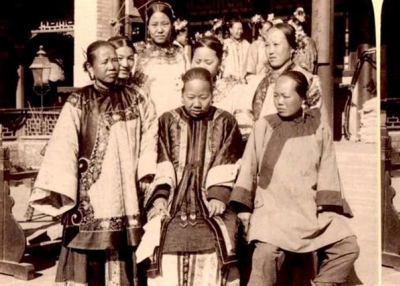
In the opulent world of luxury, where each brand vies for attention with dazzling displays of extravagance, a subtle yet powerful transformation is underway. In China, luxury brands are shifting their focus from traditional marketing campaigns to embedding women-centric initiatives into their core strategies. This trend is not just a fleeting moment but a significant pivot towards creating meaningful ecosystems for empowerment, much to the delight of the independent and stylish women of China's one-child generation. These initiatives are not only redefining femininity in the luxury market but are also sparking a new wave of empowerment and engagement across the sector.

The Rise of Women-Centric Luxury
China's luxury market is undergoing a transformation as brands begin to recognize the shifting demographics and values of their consumers. The women of China's one-child generation, often referred to as "professional aunt, no kids" (PANK), are emerging as a coveted demographic. These women are redefining femininity and independence, becoming influential tastemakers in the luxury market. According to a Jing Daily report, successful luxury brands in China are now embedding women-centric initiatives into their year-round strategies rather than relying on isolated marketing moments.
Valentino, for instance, recently unveiled a luxurious cultural campaign along Shanghai’s iconic Suzhou Creek for International Women’s Day 2025. This campaign, which embraces the concept of 'her power,' is a testament to the brand's deep understanding of the evolving female identity in China. "Valentino's initiative is a brilliant example of how brands can weave cultural and gender narratives into their broader aesthetic journey," says Lucy Chen, a fashion analyst based in Beijing.
Creating Meaningful Ecosystems
The shift towards women-centric initiatives is more than just a marketing strategy; it's about creating ecosystems that resonate with the values and aspirations of modern Chinese women. These initiatives aim to empower women by providing platforms for self-expression, creativity, and entrepreneurship. Gucci, for example, has been actively supporting female artists and entrepreneurs in China, offering them opportunities to showcase their work and collaborate with the brand.
"Gucci's approach is about more than just showcasing products; it's about building a community that celebrates and supports women," explains Mei Li, a cultural consultant who works closely with luxury brands in China. By fostering such ecosystems, brands not only enhance their appeal but also build lasting relationships with their consumers.
Empowerment Through Engagement
The impact of these women-centric initiatives goes beyond the confines of luxury boutiques. They are creating a ripple effect across society, encouraging women to embrace their individuality and pursue their passions. As noted in the Jing Daily article, these initiatives are redefining what it means to be a woman in the luxury market, promoting messages of empowerment and self-expression.
Brands like Chanel and Dior are also joining the movement, with campaigns and events that focus on empowering women and promoting gender equality. These initiatives are not only enhancing brand loyalty among female consumers but are also setting new standards for the luxury industry worldwide.
A New Era of Luxury
As China's luxury market continues to evolve, the integration of women-centric initiatives marks a new era for the industry. Brands that embrace this shift are not only staying relevant but are also leading the way in promoting positive social change. This evolution is a reflection of the broader cultural and social shifts taking place in China, where women are increasingly taking control of their narratives and asserting their place in society.
In conclusion, the rise of women-centric initiatives in China’s luxury sector is a testament to the changing landscape of consumer values and the growing influence of female consumers. As brands continue to embed these initiatives into their strategies, they are not only enhancing their market positioning but are also contributing to a more inclusive and empowering luxury ecosystem. This trend is not just about selling products; it's about creating a legacy of empowerment and self-expression that will resonate for generations to come.